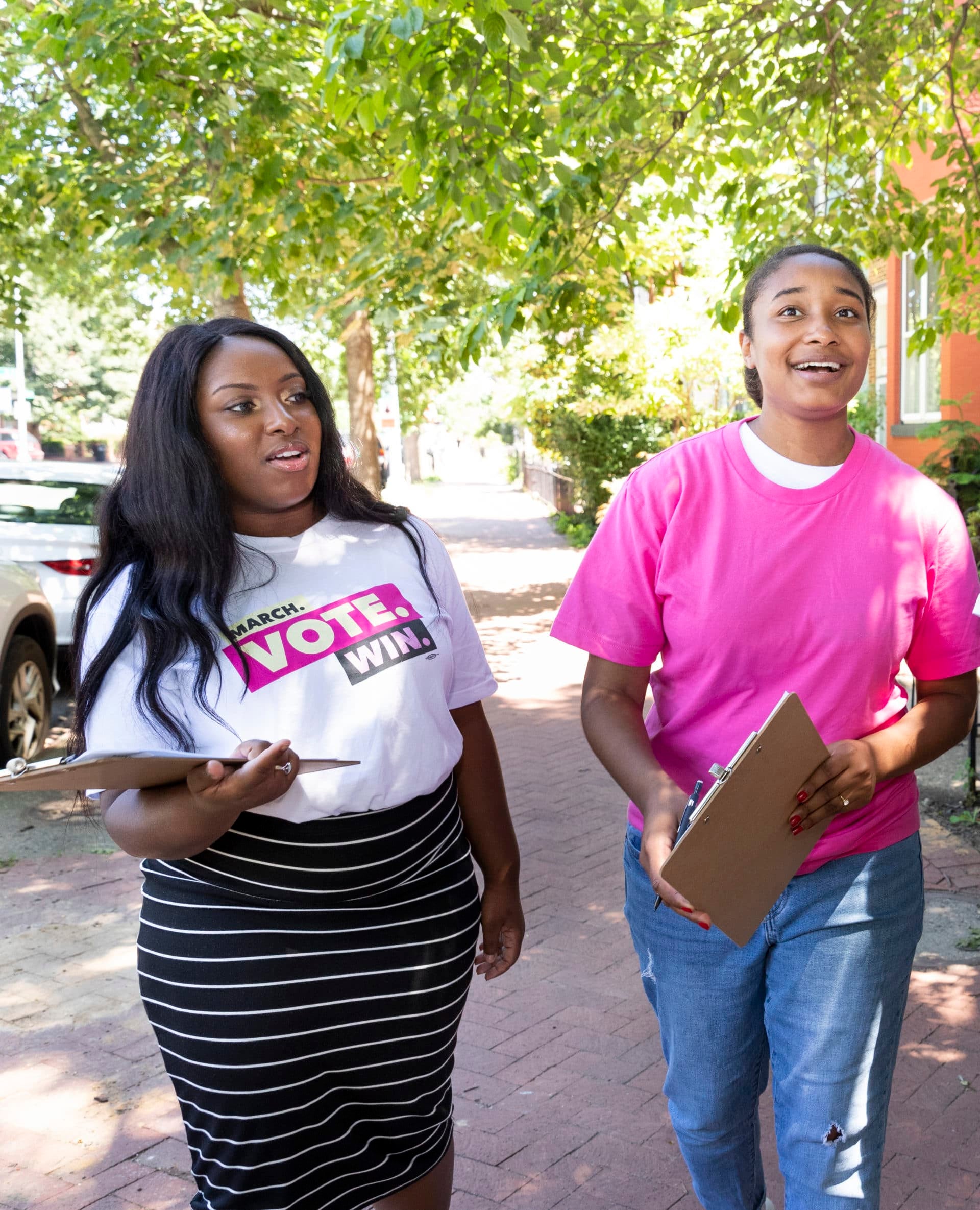
As a Black woman from the South, my grandparents experienced harsh Jim Crow laws trying to exercise their right to vote. I do not take this right for granted; every opportunity I have I will cast my ballot for progressive candidates who will not only protect my current rights but continue to move the country towards justice.
In 2018, we’re still fighting for the same thing: the ability to decide what we do with our bodies and our futures.
Black women are the most powerful voting block. We have consistently shown up to protect access to care and justice, and have made the difference in winning countless key races. Look no further than last year’s Virginia governor’s race and Alabama’s special Senate election.
We know, and have always known, that harmful policies put our bodies and lives on the line. Our vote is not only an act of resistance, but self-preservation.
Throughout this country’s history, Black women’s right to bodily autonomy and quality health care has been consistently under attack. For us, reproductive freedom is not a promise that has been realized. Because of systemic barriers, we still face delayed access to care or misdiagnosis, which result in higher rates of breast and cervical cancer, increased mortality rates for breast cancer, and higher maternal mortality rates. With Serena Williams and Beyonce sharing their stories, people are finally understanding that Black women dying in childbirth is a public health crisis.
Trump-endorsed candidates have promised policies to cut access to reproductive health care, strip Medicaid funding, and threaten access to abortion, which will take us back to days my grandmother prayed and hoped I would never see. Days when Black women — the life-givers and laborers holding our communities together — risked our bodies just to make sure our communities were healthy. That our children had an education and food. That we could live in communities where we didn’t have to second guess if our loved one would come home alive each night.
Now with Justice Brett Kavanaugh’s dangerous confirmation to the Supreme Court, we have not one, but two justices accused of sexual harassment or assault allegations who will make final decisions about what I can and cannot do with my body. The irony.
Access to reproductive health care is a critical issue for Black women and nearly 80 percent of us support access to safe, legal abortion. With federally funded programs like Medicaid and Title X — the country’s affordable birth control program —under attack by the Trump Administration, the 31 percent of 15-44-year-old Black women enrolled in Medicaid (compared to 16 percent of White women) have a lot to worry about. Coupled with the fact that Black women are paid $.63 to every dollar a white man makes, it is not surprising that 40 percent of Black women have a hard time paying for birth control at $10 or less.
It’s daunting to know what’s at stake, not only for women who look like me, but the generations of Black women and girls who will come after me — including the children I hope to have one day. With an eye on a better future, and the spirit of my grandmothers and ancestors within, my faith allows me to remain hopeful in this election. Especially with the Black women organizing on our issues through programs such as Win Justice in states Michigan, Florida and Georgia — where Planned Parenthood Votes and local partners are working with Center for Community Change Action, Color of Change PAC, and Service Employees International Union and their local partners to turn out people of color and young people.
We have the power to win this Tuesday and send a clear message to those in power, “If you vote against us, you’re going to lose your job.”
But our vote on November 6 isn’t just a vote against a conservative anti-people regime; it’s our time to vote FOR candidates who unapologetically stand with Black women: Stacey Abrams in Georgia, a staunch champion of reproductive rights from her first day in the state legislator, who will be the first Black woman governor ever when elected. Lauren Underwood in Illinois, who as a registered nurse and knows first hand that access to health care is critical to people’s lives. Ayanna Pressley who broke barriers in the Boston City Council, did it again in her primary, and will carry the mission of women and girls with her to Congress. And let’s not forget what’s happening in Alabama, where a record 70 Black women are running for office.
Black women are running to change the tide of our politics. We didn’t just start marching in 2016; we’ve long been leading the resistance towards an equitable future. With a strong coalition, we’re marching to the polls, casting our vote, and I believe we will win.
Alencia Johnson, Director of Public Engagement, Planned Parenthood Action Fund
